‘Eating in Leverett’ for 250 years: New cookbook is a lasting memento of town’s major birthday
|
Published: 11-06-2024 2:28 PM
Modified: 11-06-2024 2:29 PM |
The town of Leverett is celebrating its 250th anniversary this year. The festivities have included a cake-filled birthday party in March, a plant walk, an antique vehicle and equipment show, a quilt show, a July 4 parade and barbecue, and much more.
One of the most lasting events of the year in Leverett is a book, Claire Hopley’s “Eating in Leverett: 1774-2024” (Levellers Press, 134 pages, $29).
I have known and respected Claire Hopley since my early days as a food writer. She produces tasty, replicable recipes; researches her topics thoroughly; and produces eminently readable cookbooks.
Her sixth book, “Eating in Leverett” follows this pattern. It examines the town’s history through a culinary lens. Food touches on many aspects of our lives so it should be no surprise that this book also fills the reader in on social, industrial, technological, and even political history in town.
Even in 1774, Leverett residents didn’t live in a complete vacuum so the book touches on many food and eating trends that extended to the greater Pioneer Valley, to all of Massachusetts, to New England, and to the nation.
At the end of each informative chapter, Hopley shares a recipe or two. Some represent eras or communities in the town. Others emphasize certain crops. (There are chapters on corn and maple syrup, for example.) Most look absolutely delicious.
I asked Hopley how the book originated.
“It came from my interest in food history,” she replied. “More specifically, I read an interesting essay on food in my hometown (Chester, England) during the medieval period, and I suspect that this gave me the idea of writing about food of Leverett’s past.
Article continues after...
Yesterday's Most Read Articles
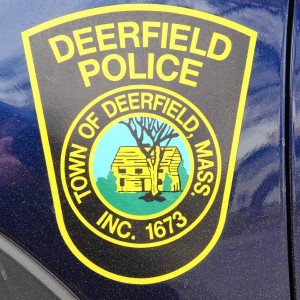 Whately cyclist struck by vehicle in Deerfield
Whately cyclist struck by vehicle in Deerfield
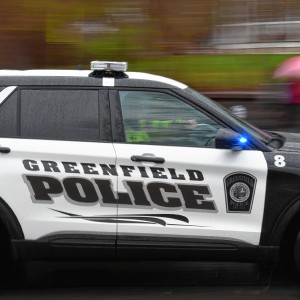 Greenfield Police Logs: March 25 to April 6, 2025
Greenfield Police Logs: March 25 to April 6, 2025
 Nearly $118K grant to fund shade tree plantings in downtown Greenfield
Nearly $118K grant to fund shade tree plantings in downtown Greenfield
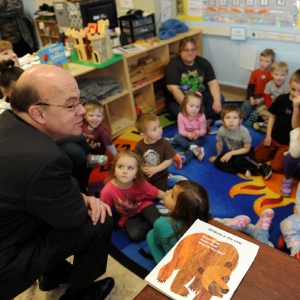 Reported cuts to Head Start program have Community Action worried about consequences
Reported cuts to Head Start program have Community Action worried about consequences
 Catholic Charities loses funding for refugee programs, shifting focus under new leader
Catholic Charities loses funding for refugee programs, shifting focus under new leader
 Greenfield native Sam Calagione, founder of Dogfish Head Brewery, to throw out first pitch at Fenway Park on Friday
Greenfield native Sam Calagione, founder of Dogfish Head Brewery, to throw out first pitch at Fenway Park on Friday
“It lingered in the back of my mind until about a year ago; then knowing about the 250th anniversary made me think if I was ever going to do it, I should get cracking.”
She explained that she read a lot of books about the history of the town and of the area in general. She looked at local and regional cookbooks.
“In addition, I used our listserv, Leverett Connects, to ask questions and almost always got answers from residents, usually from memories, occasionally from someone’s expertise,” she noted. “The cookbooks put out by Leverett community groups — the church, school, library — were vital for the late 19th and 20th centuries.”
I asked her what surprised her in her research. She told me that she hadn’t known before about the process of “binding out” children to neighboring families in colonial New England and beyond, a form of apprenticeship.
“The family undertook to feed and clothe the child but had control of his/her labor and took all the earnings,” she explained.
“I was also surprised to see how rapidly wheat took over from corn as the main bread grain once high-tech farming and processing reduced its cost around the beginning of the 20th century,” she added.
When I asked for a recipe, Hopley had no trouble making up her mind and supplied me with the formula for ”Gainsburgers.”
Older readers will recall that Gaines Burgers were a brand of dog food manufactured beginning in the 1960s by General Foods. They were individually packaged and wrapped disks that looked like hamburgers. My own childhood dog Nipper was known to nosh on a Gaines Burger from time to time.
Interestingly, a new, healthier “gourmet” form of Gaines Burgers was introduced in 2020 by dVour Brands. I have never seen this product so my Cocoa has never tried the new version, but apparently the name still evokes some nostalgia.
“I found the recipe for Gainsburgers in a recipe collection from the Congregational Church,” Hopley told me. “When I asked Leverett Connects I got lots of replies and fun tales. It was a beloved cookie on the lunch menu of Leverett Elementary School.
“The kids called them Gainsburgers because they looked like [the] popular dog food. It seems that at least some of the bigger kids let the younger ones believe they really were dog food with the idea of grossing them out so they wouldn’t eat them and the big kids could get more for themselves.
“Everyone adored them. When I made the recipe they certainly didn’t last long!”
I’m not sure why the recipe calls for cutting the “burgers” into squares.
Circles would be so much more Gaines-Burger like. Cutting them into squares leads to less waste, however.
“Eating in Leverett: 1774-2024” is available at Collective Copies in Amherst (open from 10 a.m. to 2 p.m. on weekdays), as well as at the Leverett Coop and General Store, which is open seven days a week.
Claire Hopley will sign copies of her book at the Coop’s Harvest Festival this coming Sunday, Oct. 6, from noon to 4 p.m.
People who cannot come to those places may order the book from Hopley herself. She is offering a Leverett anniversary special price on the book of $25.
Claire Hopley may be reached at claireannhopley@gmail.com.
Claire Hopley was told that these treats should be about 1/2-inch thick. She observed that nowadays people don’t generally use quite this much sugar in a recipe; she cut the quantity of sugar down to 1 1/2 cups to produce “cookies that suffered not at all from this reduction.”
I look forward to trying to make these the next time the weather gets hot; they are no-bake cookies.
The spelling of the name of this treat (a tad different from that of the dog food) comes from the community cookbook in which Hopley found the recipe.
Ingredients:
2 cups sugar (or a bit less; see above)
1/2 cup cocoa
1/2 cup milk
1/4 cup butter
1/2 cup peanut butter
1 quart oatmeal
Instructions:
Grease a cookie sheet.
Mix the sugar and the cocoa; then add them to the milk. Melt the butter and add it to the milk mixture. Bring the mixture to a boil, and boil for 1 minute.
Remove from the heat.
Add the peanut butter and stir until smooth. Add the oatmeal and mix well.
Press the dough into the prepared cookie sheet and cut it into squares while still warm. (Alternately, you may roll it out to a thickness of 1/2 inch and cut it into shapes.)
Let the cookies cool before eating them. Makes 24 to 30 cookies.
Tinky Weisblat is an award-winning cookbook author and singer known as the Diva of Deliciousness. Visit her website, TinkyCooks.com.









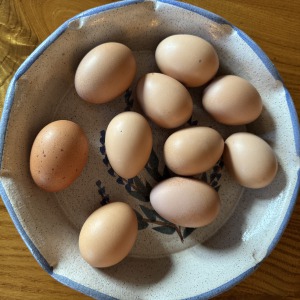 Fascinated by the seemingly infinite uses of eggs: Creamed eggs are an easy and delicious post-Easter nursery food
Fascinated by the seemingly infinite uses of eggs: Creamed eggs are an easy and delicious post-Easter nursery food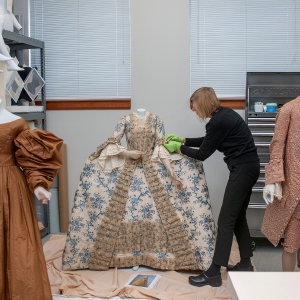 From corsets to Spanx: Historic Deerfield opens the season with ‘Body by Design: Fashionable Silhouettes from the Ideal to the Real,’ May 3
From corsets to Spanx: Historic Deerfield opens the season with ‘Body by Design: Fashionable Silhouettes from the Ideal to the Real,’ May 3 Bach and better than ever: UMass Amherst biennial Bach Fest returns April 25-27 with a multitude of concerts and symposia
Bach and better than ever: UMass Amherst biennial Bach Fest returns April 25-27 with a multitude of concerts and symposia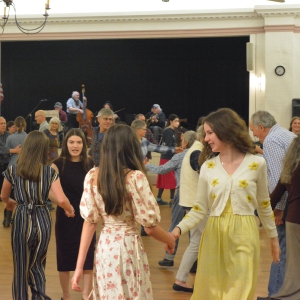 Squarely a good time: There’s a resurgence of square dancing in the hilltowns
Squarely a good time: There’s a resurgence of square dancing in the hilltowns
